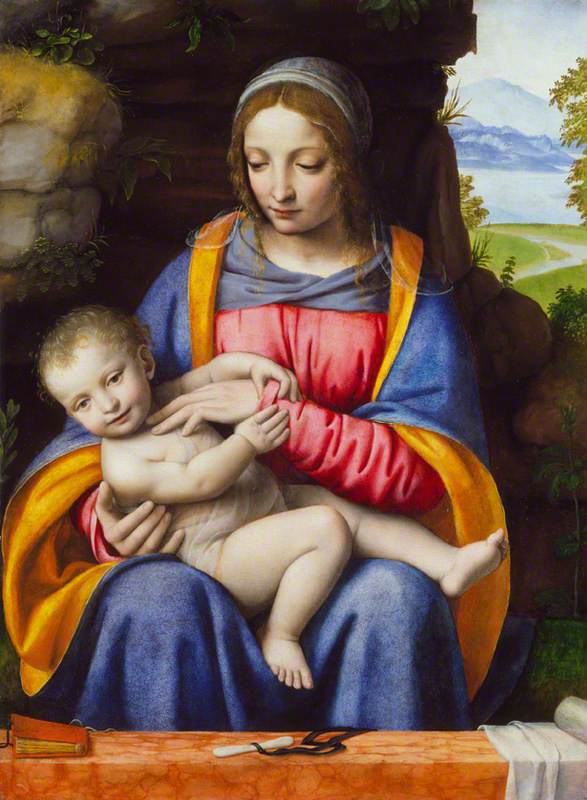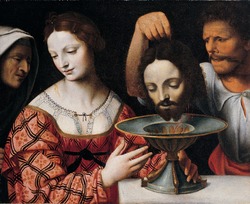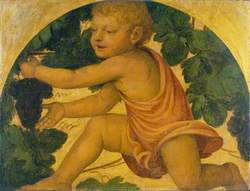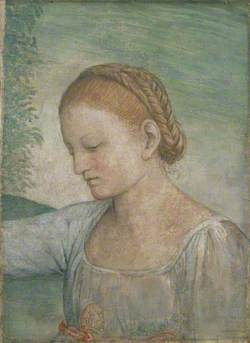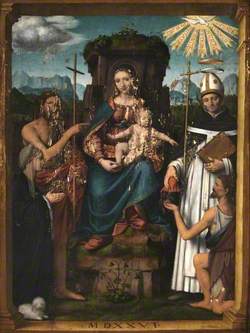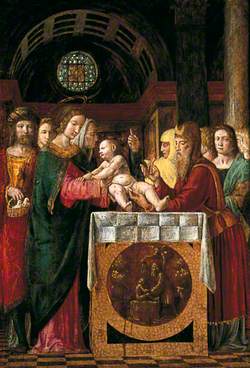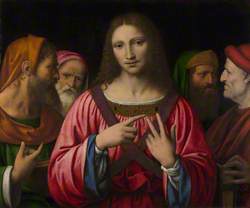How you can use this image
This image is available to be shared and re-used under the terms of the Creative Commons Attribution-NonCommercial-NoDerivatives licence (CC BY-NC-ND).
You can reproduce this image for non-commercial purposes and you are not able to change or modify it in any way.
Wherever you reproduce the image you must attribute the original creators (acknowledge the original artist(s) and the person/organisation that took the photograph of the work) and any other rights holders.
Review our guidance pages which explain how you can reuse images, how to credit an image and how to find more images in the public domain or with a Creative Commons licence available.
DownloadNotes
Add or edit a note on this artwork that only you can see. You can find notes again by going to the ‘Notes’ section of your account.
The representation of the Virgin as mother holding the Christ Child entered the West through Byzantine art. By the Renaissance, the relationship of mother and child became increasingly imbued with human feeling, as seen here, while the religious sense of the image was conveyed by means of symbolic attributes. The book refers to Christ’s innate wisdom, and may also be a forerunner of the Gospels; the ivory teething stick, with black ribbons, recalls His innocence and suffering and the white sheet, a symbolic winding sheet, foretells His death. The Virgin wears her traditional colours of a red robe beneath a blue cloak, and is posed in an attitude of humility with downcast eyes. In medieval theology, humility was regarded as the basis for all other virtues, and thus as an appropriate attribute of the Mother of Christ.
Title
The Virgin and Child in a Landscape
Date
c.1520
Medium
oil on poplar panel
Measurements
H 73.2 x W 54.4 cm
Accession number
P8
Acquisition method
acquired by Richard Seymour-Conway, 4th Marquess of Hertford by 1854; bequeathed to the nation by Lady Wallace, 1897
Work type
Painting
